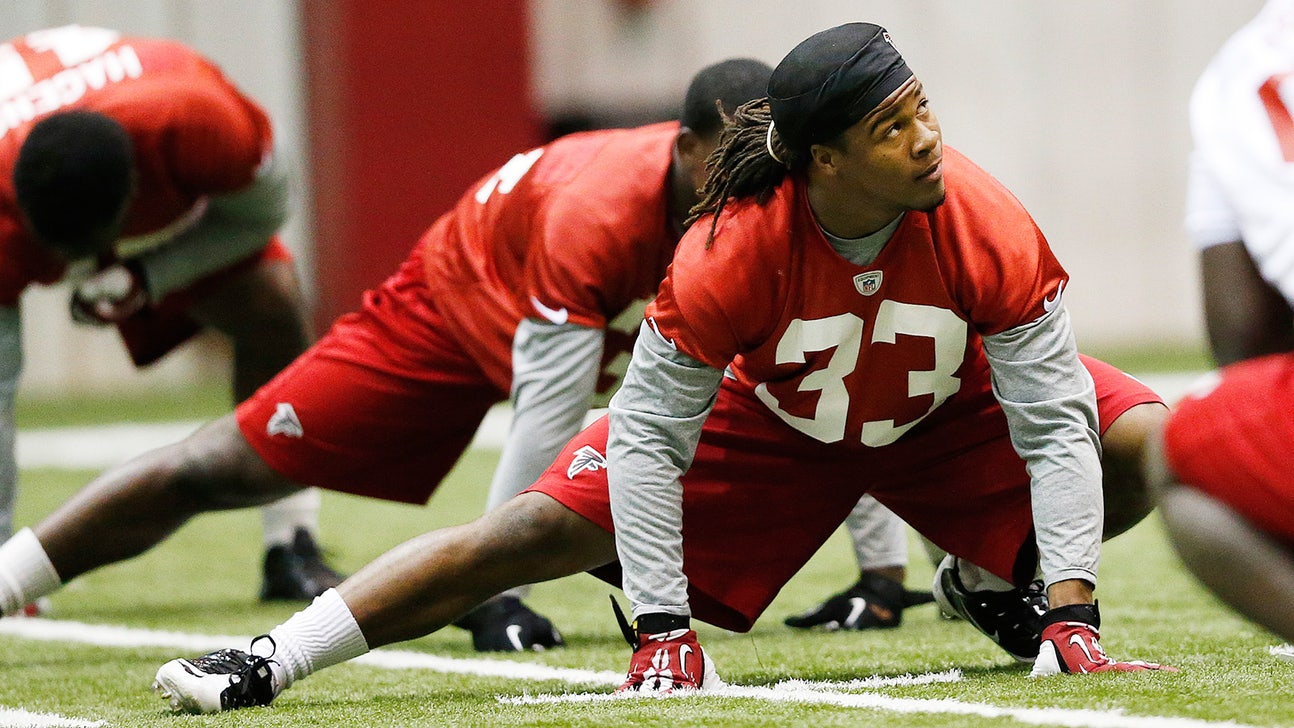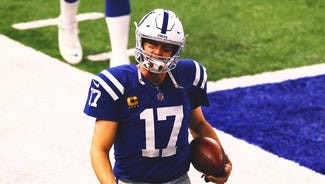
Falcons RB Freeman off to quick start at rookie mini-camp

FLOWERY BRANCH, Ga. -- For a rookie entering his first NFL season, it's understandable to confuse your head coach with a deity -- or, at least, to mention them in the same breath. After all, an NFL head coach can sometimes seem to wield omniscient powers for those in his charge.
That's what Falcons' fourth-round pick Devonta Freeman did on Saturday, the second day of rookie mini-camp sessions that were made available to the media. The 5-foot-8, 206-pound running back knows, partially owing to his size, that he is in for an adjustment when it comes to making the jump from a BCS championship-winning team at Florida State to the NFL.
"I feel like that that's one of the main things I've been working on since I started, even in college ... there's a lot of guys that are way bigger than me, so that's one of the things I work on the most," he said. "I just try to perfect my craft. I feel like I can be a three-down back. I'm happy to be here and I just want to do whatever Coach Smith and God planned for me."
What Smith has planned for Freeman is for him, possibly, to become the Falcons' running back of the future. Steven Jackson, who will be 31 in July, is in the second year of a three-year contract worth $12 million. There are no guarantees that Jackson will be back for the third and final year of that contract next season, as nothing in the NFL is a given. Consider that earlier this year the Falcons cut a pair of 30-year-old former starters in Stephen Nicholas and Asante Samuel.
When Smith got his first look at Freeman on the field, he liked what he saw.
"Devonta is an explosive young player that shows what we saw on tape," he said. "He was a very good player at Florida State and he's a guy that's built like a change-of-pace back, but he's really not what we call a C.O.P. He's a guy who can run between the tackles. We're anxious to get more stuff to him and see what he can take."
For many of the rookies, that was the challenge -- absorbing the massive amounts of information that coaches were throwing at them during the mini-camp. In the NFL, if players cannot master all of the nuances of the playbook, then they can't play. It's that simple.
"The main thing, they've been throwing so much stuff at us like the plays," Freeman said. "All this is new to us. Coach Jimbo (Fisher at Florida State) kind of had us on the same system like this. Waking up in the morning, kind of like an all-day thing so it's kind of -- I'm used to that. But the playbook and stuff, that's what I've got to get used to.
"They've been throwing a lot of that at us. They've been demanding that the most, more than anything ... I know as the season goes on, when the coaches see I've caught on to the playbook more, they'll tell me, 'Work at this, work at that' and I'll just do whatever they say."
It's interesting to hear Freeman say that playing is the easy part. NFL players and coaches often talk about the game slowing down for them -- the mental part -- so they can play fast. Freeman's biggest challenge in becoming a three-down back will be his ability to recognize and pick up blitzes.
"I feel like that's one the main things: If you can block and protect that million-dollar quarterback, I mean, that's the main thing we like, protecting the guy," he said. "That's first. Catching and running, I feel like that's the easy part of it. It just comes naturally but blocking, that's something that you have to have heart and stuff. I take a lot of pride in that so that's one of the things I'm going to work at the most."
On a Seminoles team that averaged 51.6 points per game, Freeman had the benefit of a Heisman Trophy-winning quarterback in Jameis Winston and an offensive line that far outclassed most of its opponents. To his credit, Freeman averaged 5.9 yards per carry in 2013 -- a number he knows that he will be lucky to approach in the NFL.
"Yeah, it's going to be way, way harder because you got everybody's a pro so there ain't no room for mistakes," he said, "because if you make a mistake, your job's on the line. I feel like it's going to be way harder. That means I've got to get even better at what I do. I just feel like the main thing is learning it first and it might be four yards. Never know. But I'm going to continue to work at it, but I never really cared about stats and stuff."
With that impressive rushing average, Freeman totaled 1,016 yards in 2013, making him the sixth player in school history to record a 1,000-yard rushing season -- and the first since Warrick Dunn. Dunn, who played for the Falcons and now is a limited partner (meaning he has an ownership stake), is a role model of Freeman's. And not just because both players are diminutive in stature. The oldest of seven siblings, Freeman grew up in a Miami housing project amid guns, drugs and violence, but he negotiated a straight path, just as Dunn did in his native New Orleans.
"Warrick Dunn, he's just one of those guys who I looked up to on and off the field since I came to Florida State," Freeman said. "More than what I do on the field, I watch what he do for families and how he gives back to the community and give back to kids. That's something I really want to do and try to help out at it. Show kids that come from less fortunate situations that it's possible because I was one of those kids. I just want to let a lot of people see my story and do what Warrick Dunn did and what he did on the field.
"He was about his business. That's one thing I take very seriously. I'm about my business. I just want to follow his footsteps."
Later on the interview session, Freeman deftly sidestepped a question that held a potential pitfall about what he could bring to the Falcons based on his championship experience. If a fourth-round pick had spoken about bringing leadership to a team full of veterans, a number of whom stood one game away from the Super Bowl 18 months ago, it could have struck a sour note.
"Oh, yeah, just excitement," he said. "Letting them boys know just what I'm about: Perfection, consistency and I'm always going to be persistent so if somebody tells me, 'No, I can't do this,' I'm always going to be persistent and say, 'Yes, I can.' I'm going to keep doing this stuff. I know what it takes to win, the hard work. It's going to take all of us to come together, the locker room and treatment, the nutritionist. I feel all of that has to play a big part for us in order to get the national champion -- I mean, the Super Bowl."
Laughs ensued. He had won over his crowd. Now he just needs to do the same with his coaches and teammates.â










